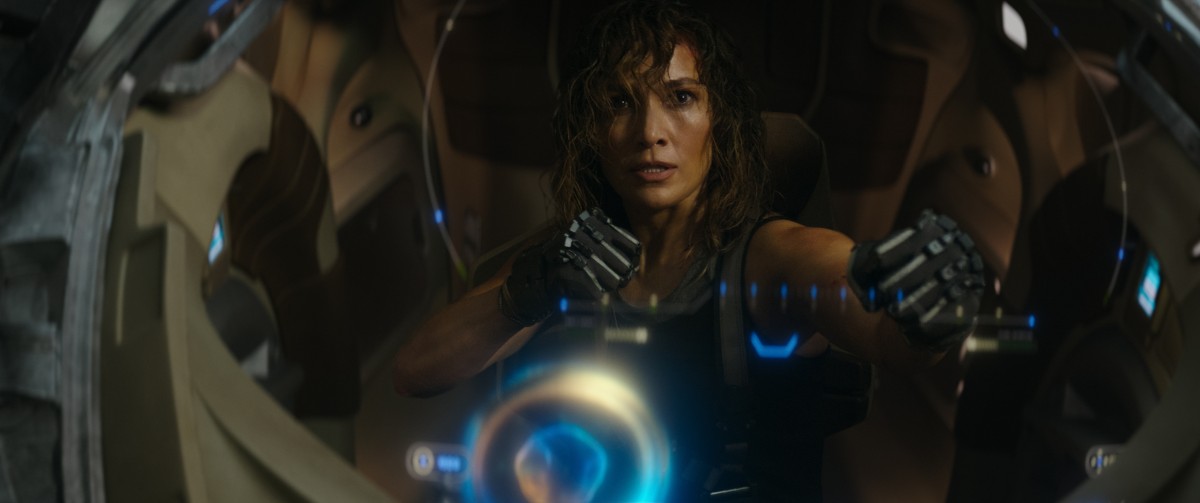When it comes to the handful of names who are defiantly keeping the idea of super-stardom alive, Jennifer Lopez is near the top of the list as a multi-hyphenate entertainment royalty. Just take a look at some of the projects she’s steered in the last few years as a producer, actor, and singer, and the picture of her cultural reach snaps into place across genres and mediums: 2019’s heist flick “Hustlers,” rom-coms “Marry Me” and “Shotgun Wedding” (2022), the intimate action-thriller “The Mother” (2023), a self-funded project about her life journey titled “This is Me … Now” (2024) and a Superbowl halftime show appearance in 2020, among others. It’s almost as if Lopez boldly declares at every turn that she’s the whole package, while the rest of the world complains about the kinds of movies we don’t get anymore, or the stars they don’t make like they used to.
Well, it’s hard to argue against the fact that J.Lo is indeed the whole package, with a uniquely magnetic presence always welcome on any screen of any size, even when the quality of the project that she headlines leaves a lot to be desired (as is the case with some of the aforementioned outings). Her latest endeavor, Brad Peyton’s cheesy, Artificial Intelligence-centric sci-fi “Atlas” is no exception. This lackluster streaming flick that will never see its day on a big theater screen is hardly a “Minority Report,” “I, Robot” or “Gravity”—just a few of the movies that co-writers Leo Sardarian and Aron Eli Coleite seemed to have had in mind in developing their story. But look beyond the dreary CGI and some clumsy set-pieces, and it has Lopez all the same, muscular and fiery, game for any cheesy line “Atlas” gleefully throws her way.
It sometimes feels like those cheesy lines are the film’s second greatest asset (after, of course, Lopez). Which is why the film’s straight-to-streaming release feels especially unfortunate—aren’t knowingly hokey rulings like “Eat Shit!” from the lips of the recent Oscar nominee Sterling K. Brown (“American Fiction”) before he blows up an entire AI-ruled settlement and “Let’s go, bitch!” delivered by Lopez herself best enjoyed among a rowdy crowd? But you’ll have to settle with the pleasure of your own company instead of following the brilliant data analyst Atlas Shepherd (Lopez), first across the cartoonishly rendered Los Angeles of the distant future and, later, outer space. It’s a time when AI is dominant but regulated by a special unit. And a renegade robot—Simu Liu’s Harlan, with a pair of distracting blue contact lenses—who fled planet Earth 28 years ago is still feared. What if he returns with an army, and the wrong kind of AI takes over the world?
Like Will Smith’s Del in “I, Robot,” Atlas here is full of hatred against AI, with a strong preference for things that are traditional and analog. But when a recent mission sends her to an unstable and inhospitable planet called GR39 under Colonel Elias Banks’ (K. Brown) leadership, she has no choice but to trust the very robotic powers she detests. Especially after she loses her entire team during the mission and gets stuck in a mech suit controlled by Simon, the AI persona from whom she needs help. But can the ever-cynical and sarcastic Atlas learn to trust Simon and allow it to synch up with her brain completely?
Much of the film’s second act builds around Atlas’ trust issues, with the film—like Gareth Edwards’ “The Creator” recently—working too hard to demonstrate that not all AI is bad. Fine, it’s not as if even the fiercest AI skeptics out there aren’t aware of the benefits of such technology, provided that it is shaped and piloted by the right hands. But at a time when this technology is increasingly threatening to replace us and rob us out of our most precious creations, this supposed message falls comically flat. If the intention is to metaphorically depict the importance of trust in human relationships, the dynamic between Atlas and the increasingly anthropomorphized Simon (so human-like that he learns sarcasm and plenty of cuss words) doesn’t come close to suggesting that in a deep or relevant fashion.
As the film reveals the enigmatic connection between Atlas and Harlan later on, “Atlas” goes further off the rails amid visual designs and thematic ideas that feel borrowed from other (and better) films that came before it. And for a “our future depends on this”-type tale, the stakes never quite coalesce. But “Atlas” does have Jennifer Lopez in all her starry glory in the driver’s seat. It’s not nearly enough, but it’s something.




















